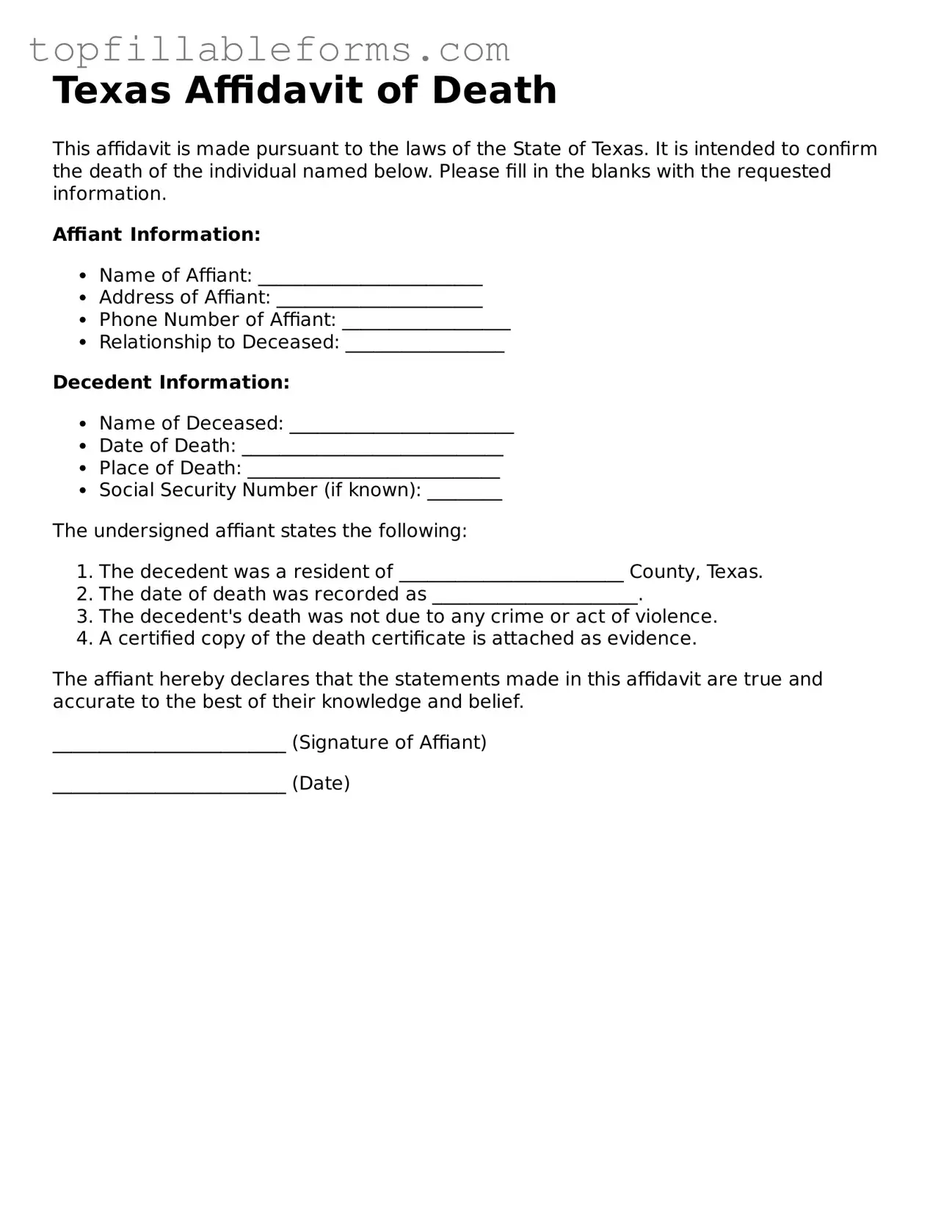Attorney-Verified Affidavit of Death Template for Texas
The Texas Affidavit of Death form is a legal document used to declare the passing of an individual, often required in various legal and financial processes. This form serves as an official record, providing necessary information about the deceased and ensuring that their affairs can be settled appropriately. Understanding how to complete and file this affidavit is crucial for those navigating the complexities of estate management in Texas.
Open Affidavit of Death Editor Here

Attorney-Verified Affidavit of Death Template for Texas
Open Affidavit of Death Editor Here
Finish the form now and be done
Finish your Affidavit of Death online by editing, saving, and downloading fast.
Open Affidavit of Death Editor Here
or
▼ PDF File
